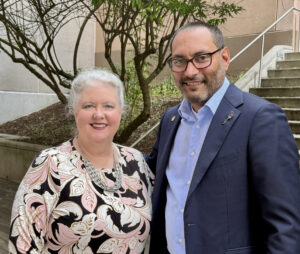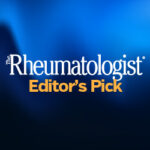I can’t believe how quickly this year has gone by. It seems like it was just yesterday when I was writing my first President’s Corner article, shortly after accepting the gavel from Deborah Dyett Desir, MD, to become the 88th president of the ACR. Now, it is my turn to pass that gavel over to our next ACR President, William Harvey, MD, MSc, who will be a great leader for our organization (see his Q&A here).
I am truly thankful for every minute I have had in serving this amazing organization and its members over the past year. Coming into this role, I was told that every president faces at least one challenge. And yes, 2025 has had challenges, faced not just by me, but more importantly by our patients and by all of us in the house of medicine. These challenges have come from many different fronts: threats to research that could impact the progress of scientific discovery, barriers to access and delivery of care by clinicians, medical misinformation, the rise of health inequities, and risks to inclusion and respect for every individual.
Although issues of such great importance could easily overwhelm my perceptions of the past year, what has come shining through has been the way in which the ACR/ARP, as an organization, and we, as individual rheumatologists and rheumatology professionals, have stood together as one community to face such challenges and support the care of people with rheumatic disease.
As I reflect on this year, there are so many memories to look back upon. The most lasting impressions though will come from those times where I directly saw the ACR/ARP’s mission in action, which is to empower rheumatology professionals to excel in their specialty.
Advocacy in Action
Coming into this year, one of the main knowledge gaps in my ACR volunteer portfolio was that I had spent limited time involved in advocacy. I am very appreciative of my colleagues who possessed those advocacy skills and our amazing advocacy staff who helped me to rapidly address this gap, which was so necessary in 2025.
During this time, I gained incredible respect for the importance of advocacy in assuring that the voice of rheumatology is heard. The ACR is fortunate to have a skilled and experienced staff team based in Washington, D.C., which enabled us to be at the forefront of emerging actions and policy decisions and who actively delivered our vital messages. Working together with our Government Affairs, RheumPAC, and Rheumatologic Care committees, the 2025 ACR/ARP advocacy team spoke in a firm and meaningful way on behalf of rheumatology practitioners, investigators, and the patients they serve.




